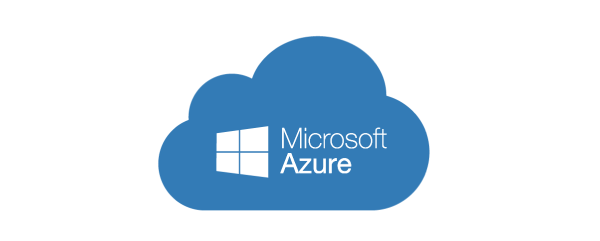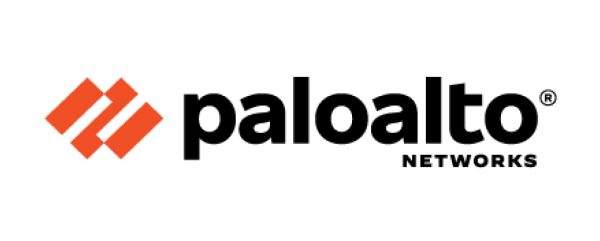
Introduction
In today’s digital world, protecting your business network is no longer optional—it’s essential. With cyber threats growing every day, enterprises of all sizes must secure their systems, data, and users. This is where firewall solutions come in. Think of a firewall as the security guard at the entrance of your business network: it checks every request and decides who gets in and who stays out.
But what makes modern firewall solutions so important? And how do they actually help businesses stay secure? In this guide, we’ll break down everything in simple, easy-to-understand language.
Understanding What a Firewall Is
A firewall is a security device or software that monitors incoming and outgoing network traffic. It works based on predetermined rules to allow or block data packets.
In simple terms, imagine your network as a house and the firewall as your main door. It lets in the people you trust and keeps out those who don’t belong there.
Why Modern Enterprises Need Firewall Solutions
Cyberattacks are increasing in both number and complexity. Modern enterprises must safeguard their:
- Sensitive customer data
- Financial records
- Internal communication
- Applications and cloud resources
Without a firewall, businesses would be exposed to hacking attempts, malware, ransomware, and many other threats.
Key Types of Firewall Solutions
Firewalls come in different shapes and types. Here are the most common ones:
Packet-Filtering Firewalls
The simplest form, allowing or blocking data based on rules.
Stateful Inspection Firewalls
These understand the context of network traffic—not just individual packets.
Next-Generation Firewalls (NGFW)
These are advanced firewalls combining multiple security features like deep packet inspection, intrusion prevention, and application control.
Application-Level Gateways
Firewalls that monitor traffic at the application layer for deeper protection.
How Firewalls Work in Simple Terms
Firewalls analyze data traveling in and out of a network. They look at:
- IP addresses
- Ports
- Protocols
- Applications being used
Using these details, they decide who gets access. Think of it like checking IDs at a secure building—only approved visitors get entry.
Essential Features of Modern Firewall Solutions
Modern firewalls go beyond just blocking suspicious traffic. They include:
Deep Packet Inspection (DPI)
Inspects the contents of data, not just the header.
Intrusion Prevention System (IPS)
Detects and prevents known threats.
Application Control
Monitors applications to prevent misuse or unauthorized access.
Web Filtering
Blocks harmful websites or categories.
VPN Capabilities
Helps secure remote access for employees.
Advanced Threat Protection Capabilities
Firewalls now use intelligent technologies like:
- AI-powered threat detection
- Zero-day attack protection
- Sandboxes to test suspicious files
These advanced features ensure that even new or unknown malware is caught early.
Benefits of Implementing Firewall Solutions
Firewalls offer several benefits for enterprises:
Strengthened Network Security
Protects your system against malware, ransomware, and unauthorized access.
Improved Productivity
Prevents access to distracting or harmful websites.
Controlled Traffic Flow
Manages bandwidth and controls application usage.
Cost Savings
Avoids costly data breaches and cyberattacks.
Better Compliance
Many industries require businesses to have strong firewall protection.
Firewall Deployment Options for Enterprises
Depending on your business needs, firewalls can be deployed in:
On-Premises Firewalls
Installed physically at your location.
Cloud-Based Firewalls
Ideal for businesses using cloud services.
Hybrid Firewalls
Combines both for maximum security.
Choosing the Right Firewall for Your Business
When selecting a firewall, consider:
- Your business size
- Network traffic volume
- Type of applications you use
- Remote employee connectivity
- Budget
Next-generation firewalls (NGFWs) are usually suitable for modern enterprises.
Common Mistakes to Avoid When Using Firewalls
Ignoring Updates
Outdated firewalls may not detect new threats.
Overly Permissive Rules
Leaving too many ports open increases vulnerability.
Lack of Monitoring
Firewalls must be reviewed regularly.
Not Backing Up Configurations
Losing settings can disrupt security.
Future Trends in Firewall Security
Cybersecurity is evolving, and firewalls are becoming more intelligent. Future trends include:
- Fully AI-driven security engines
- Automated threat response
- Stronger cloud-native firewalls
- Integrated Zero Trust architecture
How Firewalls Support Compliance Requirements
Industries like healthcare, banking, and e-commerce must follow strict security standards such as:
- GDPR
- PCI DSS
- HIPAA
Firewalls help meet these requirements by ensuring secure data handling.
Real-World Examples of Firewall Usage
Here are a few scenarios:
Protecting Remote Workers
Companies use firewalls to secure VPN connections.
Preventing Ransomware Attacks
Firewalls detect suspicious downloads and block them.
Managing Employee Internet Usage
Content filtering prevents access to harmful websites.
Best Practices for Maintaining Enterprise Firewalls
Update Regularly
Ensure the firewall has the latest threat signatures.
Monitor Logs Frequently
Helps identify potential threats early.
Train Employees
Teach staff about safe browsing and phishing awareness.
Review Rules Annually
Update access controls and remove outdated ones.
Final Thoughts on Firewall Solutions
Firewalls remain one of the most crucial components of enterprise cybersecurity. With evolving digital threats, having a modern, intelligent firewall solution is no longer a luxury—it’s a necessity. By understanding how firewalls work, exploring their features, and implementing best practices, businesses can protect their assets and maintain secure operations.
FAQs
1. What is the main purpose of a firewall?
A firewall protects your network from unauthorized access by filtering incoming and outgoing traffic.
2. How does a firewall protect against hackers?
It blocks suspicious connections, monitors network traffic, and prevents unauthorized users from entering your system.
3. What is the difference between traditional and next-generation firewalls?
NGFWs offer advanced features like deep packet inspection, intrusion prevention, and application control, while traditional firewalls focus mainly on basic filtering.
4. Do small businesses need firewalls?
Yes. Small businesses are common targets of cyberattacks and need firewalls just as much as large enterprises.
5. Can cloud-based firewalls replace hardware firewalls?
For many businesses, yes—especially those relying heavily on cloud applications or remote work setups.




